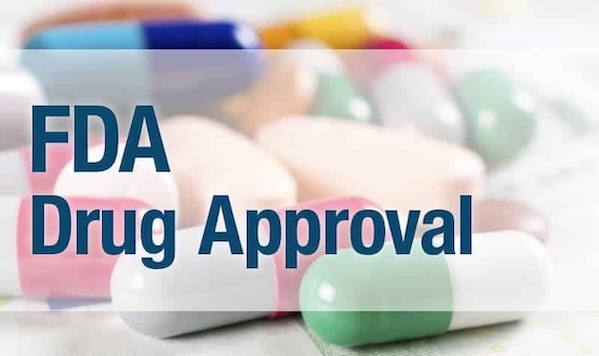Phase I clinical drugs can bypass the FDA and go directly to market
May 21, 2025
Source: drugdu
 199
199

Recently, the Montana legislature passed a bill that allows medical institutions to sell drugs that have only passed Phase I clinical trials without the need for U.S. FDA approval.
The legislation was promoted by a group of people committed to extending human life span, including scientists, libertarians and opinion leaders. They hope that Montana can become a testing ground for medical innovation, providing more options for patients, especially those with terminal illnesses or those who are ineffective with existing treatments, so that they can have earlier access to some experimental drugs that may have potential therapeutic effects.
What exactly does this bill include? First, doctors can apply for a license to open an experimental treatment clinic to recommend and sell non-FDA-approved therapies to patients. #No FDA approval required At the same time, these clinics must disclose all treatment effect and adverse event data to patients and regulators, and publish treatment effect, patient experience and adverse reaction information on the clinic website to ensure that patients voluntarily assume risks after fully understanding the relevant information about the treatment, thereby protecting patients' right to know and make independent decisions.
In addition, the bill also stipulates that all therapies must be produced in Montana. This geographical restriction not only circumvents the federal restriction that cross-state sales must be approved by the FDA, but also helps promote the development of the local pharmaceutical industry.
In addition, the bill requires the Experimental Treatment Center to use 2% of its annual net profits to support Montana residents in obtaining treatment, which reflects the concern and support for the medical needs of local residents, helps reduce the financial burden on low-income patients, and enables more people to have the opportunity to receive experimental treatments.
From the perspective of medical innovation, this legislation undoubtedly has many positive effects. First, it is expected to speed up the development of drugs. Usually, it takes a long time for new drugs to go from phase I clinical trials to final approval for marketing. This bill allows some drugs to be marketed after passing phase I clinical trials, so that pharmaceutical companies can obtain profits earlier, thereby having more funds to invest in subsequent research and development and improvements, and promoting the rapid development of medical technology.
Secondly, Montana may become a hot spot for #medical research, attracting more scientific research institutions, pharmaceutical companies and professional talents to gather here. For those research teams focusing on cutting-edge fields such as cell and gene therapy, it provides a more relaxed and favorable policy environment, which is conducive to promoting the exchange and collision of innovative ideas and accelerating the transformation and application of scientific research results.
Furthermore, the implementation of the bill may lead to the rise of the #medical tourism industry, attracting patients from other states and countries to receive experimental treatments, creating more jobs and economic income for the local area, while also helping to promote the coordinated development of related industrial chains, such as medical equipment manufacturing, biotechnology development, and medical service support.
However, this bill has also sparked a series of controversies and concerns. On the one hand, safety issues cannot be ignored. Phase I clinical trials are usually small-scale, and their main purpose is to verify the safety of drugs, but they cannot completely rule out potential risks that may exist in drugs. Many serious side effects or drug interactions may only be discovered in larger-scale Phase II and III trials. Therefore, allowing drugs that have only passed Phase I clinical trials to be marketed may expose patients to unknown risks, such as serious adverse reactions or even life-threatening conditions.
On the other hand, there are doubts about the efficacy. Drugs that have passed the first phase of clinical trials have not yet been systematically clinically verified for their effectiveness. Patients may not get the expected therapeutic effect when using these drugs, but they need to bear the corresponding economic burden and physical risks, which may be somewhat unfair to patients.
For patients, this legislation gives them more choices, but also more confusion and risks. Some patients with terminal illnesses or who have no hope for existing treatments may see this bill as a last straw and are willing to try these experimental drugs that have not been fully verified. However, they may also fall into false hope and ultimately not only fail to obtain treatment effects, but may also suffer both physical and financial losses.
Conclusion: This legislative move by Montana has brought certain opportunities for medical innovation and patient choice, but it is also accompanied by many risks and controversies. In the future, how to find a balance between promoting innovation and ensuring safety will be an issue that needs to be focused on and resolved during the implementation of this bill.
https://news.yaozh.com/archive/45481.htm l
By editorRead more on
- Rovaxitinib approved for marketing, filling the demand for myelofibrosis treatment March 2, 2026
- Warrant Pharmaceuticals’ active pharmaceutical ingredient receives Brazil’s first official GMP certification March 2, 2026
- Merck’s New Story March 2, 2026
- Rongchang Biotechnology has turned a profit! March 2, 2026
- Jiuyuan Gene’s “Simeglucopyranoside” for weight loss (Jikeqin®) has been submitted for market approval March 2, 2026
your submission has already been received.
OK
Subscribe
Please enter a valid Email address!
Submit
The most relevant industry news & insight will be sent to you every two weeks.



